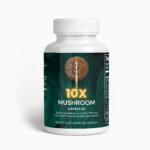
“Whose Advice to Follow? Navigating Supplement Recommendations”
The booming wellness industry has led to a plethora of supplement recommendations flooding the market. Each claims to be the miracle cure, and as a result, choosing the right one can be challenging. Navigating the maze of supplement recommendations can be confusing, especially when each expert recommends a different product. One may wonder, whose advice should they follow? It’s crucial to make informed decisions when purchasing supplements to ensure their efficacy and safety. In this article, we’ll explore the factors to consider when seeking supplement advice, enabling you to make informed and validated decisions.
1. The Challenges of Navigating the World of Supplement Recommendations
There is no doubt that navigating the world of supplement recommendations can be overwhelming. With so many products claiming to provide different health benefits, it can be difficult to know which ones are truly effective and safe for use.
One of the biggest challenges in this process is the lack of regulation in the supplement industry. Unlike prescription drugs, dietary supplements do not require FDA approval before they are sold to consumers. This means that many products on the market may not have undergone rigorous testing to ensure their safety and effectiveness.
Additionally, there is a lot of conflicting information available regarding which supplements are best for different health concerns. While some supplements may have proven benefits for certain conditions, others may not have any real clinical evidence to support their use. It is important to do your research and speak with a healthcare professional before making any decisions about which supplements to take.
2. Understanding the Different Sources of Supplement Advice
The internet offers a plethora of supplement advice, making it overwhelming to differentiate between legitimate and unreliable sources. It is crucial to understand the various sources of supplement advice to ensure you get valid and verified information. Here are a few sources, their advantages, and disadvantages:
1. Websites: Websites are a popular source of supplement advice due to their convenience and accessibility. However, not all websites are trustworthy or unbiased. It is important to check the website’s reputation, credentials of the author, and if the information is backed by scientific evidence. Reliable websites include health information portals, academic journals, and reliable healthcare organizations.
2. Supplement Companies: Supplement companies also provide advice regarding their products. However, their advice is often biased and can be misleading. Supplement companies are profit-driven and may promote their products without scientific evidence or evident risks. It’s important to verify the credibility of their sources of information before making any conclusions.
3. Health Professionals: Health professionals such as nutritionists, dieticians, and pharmacists are trusted sources of supplement advice. They have the required education and experience to offer evidence-based, safe, and unbiased guidance. Getting advice from health professionals can be costly and not always feasible, but it’s worth consulting them in the long run.
In conclusion, with different sources offering supplement advice, it’s important to be cautious about where you get your information. Evaluate the credibility of the sources and consider their objectivity before making any conclusions. Seek advice from reliable sources such as reputable websites and health professionals.
3. The Role of Science and Research in Supplement Recommendations
Science and research play a crucial role in supplement recommendations. It is essential to understand the benefits, efficacy, and safety of supplements before recommending or consuming them. Several studies have shown that the use of supplements can enhance one’s health and wellness when used appropriately. However, it’s equally necessary to acknowledge the limitations and gaps in supplements research and the need for more rigorous studies.
In identifying safe and effective supplements, it’s crucial to be aware of the claims made by manufacturers. Most supplement manufacturers make claims that have not been supported by rigorous scientific studies, which can mislead consumers into thinking they’re getting health benefits that are not backed up by scientific evidence. Therefore, consumers need to be aware of the quality and safety of supplements before making purchasing decisions.
To ensure safety and efficacy in supplement use, independent third-party organizations like USP and NSF set rigorous standards for testing and certifying dietary supplements. Products that meet these standards receive a seal of approval, indicating that they are safe, pure, and contain precisely what’s listed on the label. These organizations perform product testing, manufacturing facility inspections, and label reviews to ensure that consumers receive high-quality products that meet their health and wellness needs.
In conclusion, science and research play a fundamental role in determining the safety and efficacy of supplements and providing evidence-based recommendations. Consumers should be mindful and ensure that they buy supplements from trusted manufacturers who have obtained certification from independent certifying organizations. By doing so, they can be confident in the products they consume, knowing that they are safe and effective and provide the intended benefits to their overall health.
4. The Importance of Personal Context in Choosing the Right Supplement
When it comes to choosing the right supplement, personal context is crucial. A supplement that works for someone else might not work for you due to differences in your genetics, lifestyle, medical history, and nutritional needs. Consider the following factors in your personal context when selecting a supplement:
- Nutrient deficiencies: If you have a deficiency in a particular nutrient, you may need to supplement it to support your health. For example, if you’re deficient in vitamin D, you may benefit from taking a vitamin D supplement to improve bone density and immune function.
- Health conditions: Certain health conditions may require specific supplements to manage symptoms or improve outcomes. For example, people with high blood pressure may benefit from taking CoQ10 supplements to lower their blood pressure.
- Lifestyle habits: Your diet, exercise habits, and sleep patterns can influence your nutrient status and supplement needs. For example, if you follow a vegan or vegetarian diet, you may need to supplement with vitamin B12 as it is mainly found in animal-based foods.
Therefore, it’s important to consult with a healthcare provider or a registered dietitian to determine the right supplement that fits your personal context. They can help you identify nutrient deficiencies, health conditions, and lifestyle habits that could impact your supplement needs and provide tailored recommendations.
Ultimately, choosing the right supplement for your personal context can improve your health outcomes and prevent any potential risks or adverse effects that can come from taking unnecessary supplements. So, take the time to evaluate your personal context before choosing a supplement and seek professional guidance to make informed decisions.

5. Red Flags to Look Out for When Evaluating Supplement Advice
When it comes to seeking supplement advice, it’s crucial to be vigilant and aware of potential red flags. With the abundance of information available on the internet, it’s easy to stumble upon advice that is incorrect or potentially harmful to your health. Here are some :
1. Personal opinion presented as fact: Just because someone has had success with a certain supplement or heard positive reviews from others doesn’t mean that it is scientifically proven to be effective or safe. Be wary of individuals who present their personal opinion as fact and make grandiose claims about supplement benefits without any evidence to back it up.
2. Quick fix claims: Beware of supplement advice that promises quick and easy solutions to health problems. The truth is that supplements are not a substitute for a healthy and balanced diet or a physically active lifestyle. Additionally, even the best supplements take time to start working and require consistent and proper use to see results.
3. Lack of reliable sources: Always look for information on supplements that comes from credible sources such as scientific journals, government agencies, or reputable health organizations. Be wary of advice that comes from sources that lack reliable credentials or affiliations. Additionally, keep in mind that sponsored content or advertising may not necessarily be trustworthy and may have underlying biases.
Overall, it’s essential to approach supplement advice with a critical eye and a healthy dose of skepticism. Always do your research and consult with a healthcare professional before adding any supplements to your diet to ensure that they are safe and effective for you. Remember that the goal is to be informed and make the best decisions for your health and well-being.
6. How to Find a Trustworthy Supplement Expert or Practitioner
If you’re struggling with health issues and are considering taking supplements, finding a trustworthy expert or practitioner is crucial. Here are some tips for finding someone you can trust:
1. Look for credentials: Make sure the expert or practitioner you’re considering has the right qualifications and certifications. Look for degrees in nutrition or health sciences, certifications from reputable organizations, and experience in their field.
2. Check reviews and references: Do some research to see what other people are saying about the expert or practitioner. Look for online reviews, check their website for testimonials, and contact references to get a sense of their track record.
3. Ask questions: When you meet with a potential expert or practitioner, don’t be afraid to ask questions. Find out about their approach to health and wellness, their experience with supplements, and their philosophy on nutrition. A trustworthy expert will be happy to answer your questions and provide you with information you need to make an informed decision.
Remember, finding a trustworthy supplement expert or practitioner takes time and effort, but it’s worth it in the end. With the right guidance, you can make informed choices about your health and wellness and find supplements that work for you. If you’re not sure where to start, ask friends and family for recommendations, check with your doctor, or use online resources to find reputable experts in your area.
7. Taking Control of Your Health with Informed and Effective Supplement Decisions
Are you tired of feeling sluggish and unwell? Do you want to take control of your health and make informed decisions about supplements? Look no further! With a little bit of research and the right tools, you can improve your overall wellbeing and feel your best.
One important step in making informed supplement decisions is to educate yourself about the ingredients. Take the time to read labels and do research on each ingredient. Look for trustworthy sources and studies to ensure that the supplement you are considering is safe and effective. You should also pay attention to the dosage recommended by the manufacturer and talk to your doctor or a healthcare professional before taking any new supplements.
Another key factor in supplement decision-making is to recognize your personal needs and goals. Whether you are looking to improve your immune system, boost your energy, or support overall health, there are supplements out there that can help. Focus on what your body needs and what will help you achieve your goals. It may be helpful to keep a journal or consult with a healthcare professional to develop a supplement plan tailored to your individual needs.
Overall, taking control of your health through informed supplement decisions can be a game-changer. By educating yourself on ingredients and recognizing your personal needs and goals, you can feel more confident in your choices and ultimately support your overall wellbeing. Remember to always consult with a healthcare professional before adding any new supplements to your routine, and stay committed to making choices that benefit your health and happiness.
In the end, making an educated decision about the best supplement for you is a personal journey that’s unique to your individual needs. Just remember to stay objective, do your research, and keep your doctor in the loop whenever possible. With the right amount of information and consideration, you’ll be able to make the best decision for your diet and lifestyle.

























